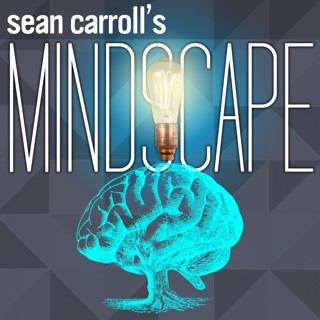
139 | Elizabeth Anderson on Equality, Work, and Ideology
Imagine two people with exactly the same innate abilities, but one is born into a wealthy family and the other is born into poverty. Or two people born into similar circumstances, but one is paralyzed in a freak accident in childhood while the other grows up in perfect health. Is this fair? We live in a society that values some kind of “equality” — “All men are created equal” — without ever quite specifying what we mean. Elizabeth Anderson is a leading philosopher of equality, and we talk about what really matters about this notion. This leads to down-to-earth issues about employment and the work ethic, and how it all ties into modern capitalism. We end up agreeing that a leisure society would be great, but at the moment there’s plenty of work to be done.Support Mindscape on Patreon.Elizabeth Anderson received a Ph.D. in philosophy from Harvard University. She is currently the Arthur F. Thurnau Professor and John Dewey Distinguished University Professor of Philosophy and Women’s Studies at the University of Michigan. Among her honors are the MacArthur Fellowship, a Guggenheim Fellowship, and membership in the American Academy of Arts and Sciences. She was named by Prospect magazine as one of the top 50 thinkers of the Covid-19 era.Web siteUniversity of Michigan web pageNew Yorker profileAmazon.com author pageGoogle Scholar publicationsWikipediaSee Privacy Policy at https://art19.com/privacy and California Privacy Notice at https://art19.com/privacy#do-not-sell-my-info.
22 Maalis 20211h 19min

138 | Daryl Morey on Analytics, Psychology, and Basketball
You might think that human beings, exhausted by competing for resources and rewards in the real world, would take it easy and stick to cooperation in their spare time. But no; we are fascinated by competition, and invent games and sports to create artificial competition just for fun. These competitions turn out to be wonderful laboratories for exploring concepts like optimization, resource allocation, strategy, and human psychology. Today’s guest, Daryl Morey, is a world leader in thinking analytically about sports, as well as the relationship between impersonal data and the vagaries of human behavior. He’s currently an executive in charge of the Philadelphia 76ers, but I promise you don’t need to be a fan of the Sixers or of basketball or of sports in general to enjoy this wide-ranging conversation.Support Mindscape on Patreon.Daryl Morey received a bachelor’s in computer science from Northwestern University, and an MBA from the MIT Sloan School of Management. He served as general manager for the Houston Rockets from 2007 to 2020, and since November 2020 has been the President for Basketball Operations for the Philadelphia 76ers. He is founder and co-chair of the annual MIT Sloan Sports Analytics Conference. He was voted NBA Executive of the Year in 2018.Philadelphia 76ersBasketball-Reference pageWikipediaTwitterSee Privacy Policy at https://art19.com/privacy and California Privacy Notice at https://art19.com/privacy#do-not-sell-my-info.
15 Maalis 20211h 16min

AMA | March 2021
Welcome to the March 2021 Ask Me Anything episode of Mindscape! These are funded by Patreon supporters (who are also the ones asking the questions). With an expanding number of questions, it’s become a bit impractical for me to try to rush through and answer them all. So instead, this time I have picked out certain questions to tackle, and grouped some together if they were related. I tried to pick questions on the basis of whether or not I had anything interesting to say in response, but that will of course be in the ear of the listener.Support Mindscape on Patreon.See Privacy Policy at https://art19.com/privacy and California Privacy Notice at https://art19.com/privacy#do-not-sell-my-info.
10 Maalis 20213h 11min

137 | Justin Clarke-Doane on Mathematics, Morality, Objectivity, and Reality
On a spectrum of philosophical topics, one might be tempted to put mathematics and morality on opposite ends. Math is one of the most pristine and rigorously-developed areas of human thought, while morality is notoriously contentious and resistant to consensus. But the more you dig into the depths, the more alike these two fields appear to be. Justin Clarke-Doane argues that they are very much alike indeed, especially when it comes to questions of “reality” and “objectivity” — but that they aren’t quite exactly analogous. We get a little bit into the weeds, but this is a case where close attention will pay off.Support Mindscape on Patreon.Justin Clarke-Doane received his Ph.D. in philosophy from New York University. He is currently Associate Professor of philosophy at Columbia University, as well as an Honorary Research Fellow at the University of Birmingham and Adjunct Research Associate at Monash University. His book Morality and Mathematics was published in 2020.Web siteColumbia web pageGoogle Scholar publicationsInterview at What Is It Like to Be a Philosopher?Heyman Center eventSee Privacy Policy at https://art19.com/privacy and California Privacy Notice at https://art19.com/privacy#do-not-sell-my-info.
8 Maalis 20211h 32min

136 | Roderick Graham on Cyberspace, Race, and Cultural Conservatism
The internet has made it so much easier for people to talk to each other, in a literal sense. But it hasn’t necessarily made it easier to have rewarding, productive, good-faith conversations. Here I talk with sociologist Rod Graham about what kinds of conversations the internet does enable, and should enable, and how we can work to make them better. We discuss both how social media are used for nefarious purposes, from cyberbullying to driving extremism, but also how they can be mobilized for more lofty goals. We also get into some of the lost nuances in conventional discussions of race, including how many minorities are more culturally conservative than an oversimplified narrative would lead us to believe, and the tricky relationship between online discourse and social cohesion.Support Mindscape on Patreon.Roderick Graham received his Ph.D. in sociology from the City University of New York. He is currently an Associate Professor of Sociology and Criminal Justice at Old Dominion University, and serves as the coordinator of the university’s Cybercriminology Bachelor’s program. He is the author of The Digital Practices of African-Americans.Web siteOld Dominion web pageGoogle Scholar publicationsArticles on MediumYouTube channelTwitterSee Privacy Policy at https://art19.com/privacy and California Privacy Notice at https://art19.com/privacy#do-not-sell-my-info.
1 Maalis 20211h 23min

135 | Shadi Bartsch on Plato, Vergil, Confucius, and Modernity
In our postmodern world, studying the classics of ancient Greece and Rome can seem quaint at best, downright repressive at worst. (We are talking about works by dead white men, after all.) Do we still have things to learn from classical philosophy, drama, and poetry? Shadi Bartsch offers a vigorous affirmative to this question in two new books coming from different directions. First, she has newly translated the Aeneid, Vergil’s epic poem about the founding myth of Rome, bringing its themes into conversation with the modern era. Second, in the upcoming Plato Goes to China, she explores how a non-Western society interprets classic works of Western philosophy, and what that tells us about each culture.Support Mindscape on Patreon.Shadi Bartsch-Zimmer received her Ph.D. in Classics from the University of California, Berkeley. She is currently the Helen A. Regenstein Distinguished Service Professor of Classics at the University of Chicago. Among her awards are a Guggenheim Fellowship, an American Council of Learned Societies Fellowship, and multiple teaching awards. She has served as the Editor-in-Chief of Classical Philology, and is the Founding Director of the Stevanovich Institute on the Formation of Knowledge. She is developing an upcoming podcast.Web siteUniversity of Chicago web pageWikipediaTwitterAmazon author pageWashington Post Op-EdSee Privacy Policy at https://art19.com/privacy and California Privacy Notice at https://art19.com/privacy#do-not-sell-my-info.
22 Helmi 20211h 20min

AMA | February 2021
Welcome to the February 2021 Ask Me Anything episode of Mindscape! These are funded by Patreon supporters (who are also the ones asking the questions). This month is in what has been the conventional format, where I just try my best to answer every question. But it’s growing a bit unwieldy, so going forward I might just try to pick my favorite questions and answer them in greater detail. We shall see.Support Mindscape on Patreon.See Privacy Policy at https://art19.com/privacy and California Privacy Notice at https://art19.com/privacy#do-not-sell-my-info.
17 Helmi 20212h 53min

134 | Robert Sapolsky on Why We Behave the Way We Do
A common argument against free will is that human behavior is not freely chosen, but rather determined by a number of factors. So what are those factors, anyway? There’s no one better equipped to answer this question than Robert Sapolsky, a leading psychoneurobiologist who has studied human behavior from a variety of angles. In this conversation we follow the path Sapolsky sets out in his bestselling book Behave, where he examines the influences on our behavior from a variety of timescales, from the very short (signals from the amygdala) to the quite ancient (genetic factors tracing back tens of thousands of years and more). It’s a dizzying tour that helps us understand the complexity of human action.Support Mindscape on Patreon.Robert Sapolsky received his Ph.D. in neuroendocrinology from Rockefeller University. He is currently the John and Cynthia Fry Gunn Professor of Biology, Neurology, and Neurosurgery at Stanford University. His awards include a MacArthur Fellowship, the McGovern Award from the American Association for the Advancement of Science, and Wonderfest’s Carl Sagan Prize for Science Popularization.Stanford web pageWikipediaRobert Sapolsky Rocks (fan page)Amazon author pageYouTube lectures on Human Behavioral BiologyIMDbSee Privacy Policy at https://art19.com/privacy and California Privacy Notice at https://art19.com/privacy#do-not-sell-my-info.
15 Helmi 20211h 28min





















